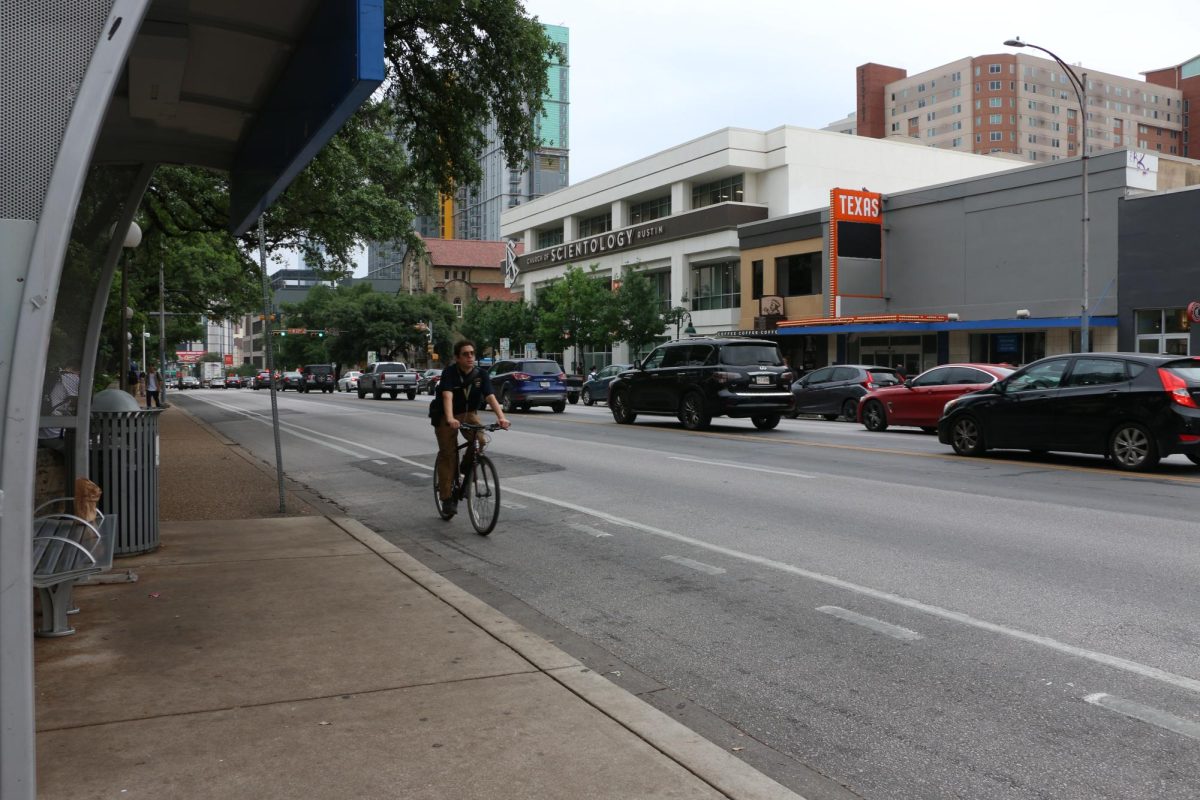According to law professor David Gonzalez, the jogger who was arrested Thursday for failing to identify herself after being stopped for jaywalking could have avoided arrest by being more cooperative.
Austin police officers detained Amanda Jo Stephen, 24, after seeing her disregard a pedestrian traffic signal at the intersection of 24th and San Antonio streets. Once stopped, Stephen refused to identify herself to the officers, who then arrested her.
“She had already committed an arrestable offense when she failed to obey traffic laws,” APD spokeswoman Veneza Bremner said.
According to Gonzalez, in most cases, withholding one’s name, residential address or date of birth only causes unnecessary tension with police. If one has not been detained or arrested, it is legal to withhold information, but Gonzalez said he discourages it.
“It’s never OK,” Gonzalez said. “If you are stopped, even if you did nothing wrong, a police officer has the right to ask you for your name, your residence address and your date of birth. There’s nothing illegal or incriminating about giving that information.”
“There is an argument of, ‘Well, I was illegally detained, so I don’t have to give it to the officer because I haven’t been legally detained,’” Gonzalez said. “But, in general, it’s bad practice. Asking for your name isn’t really considered an interrogation.”
In Stephen’s case, Gonzalez said officers would not have gone through with the arrest if her name had been provided.
“The reality is that, if she didn’t go limp, they would’ve given her a ticket, and that’s all there is to it — but, once she went limp and wouldn’t identify herself, they escalated it,” Gonzalez said.
Jaywalking alone is an arrestable offense, according to Gonzalez.
“It is confusing because it is typically a ticket,” Gonzalez said. “In Texas, other than speeding or having [an] open container of alcohol, every other thing is an arrestable offense, and it’s the police officer’s discretion as to whether to arrest you or to give you a ticket.”
Gonzalez said the best course of action for Stephen would have been to fight the arrest in court rather than on the street.
“Judges do not want people fighting with police officers on the street about whether it’s a lawful search or a lawful arrest,” Gonzalez said. “If you have a question, ask for a lawyer, follow what the police’s instructions are, say, ‘I want to have a lawyer. I don’t want to consent to anything,’ and then go to court and fight it out like civilized people. What they don’t want are people making those decisions on the street. It just aggravates things.”
Undeclared freshman Claire Matlock said she thinks jaywalking should not be an arrestable offense.
“It’s not as serious as other crimes that people are arrested for. It’s such a petty thing,” Matlock said.
Pre-public relations freshman Marisa Ballard said she thought the most severe punishment for jaywalking would be a citation.
“I think jaywalking is something that every college student does,” Ballard said. “I’m not planning on jaywalking on the Drag anytime soon.”




















